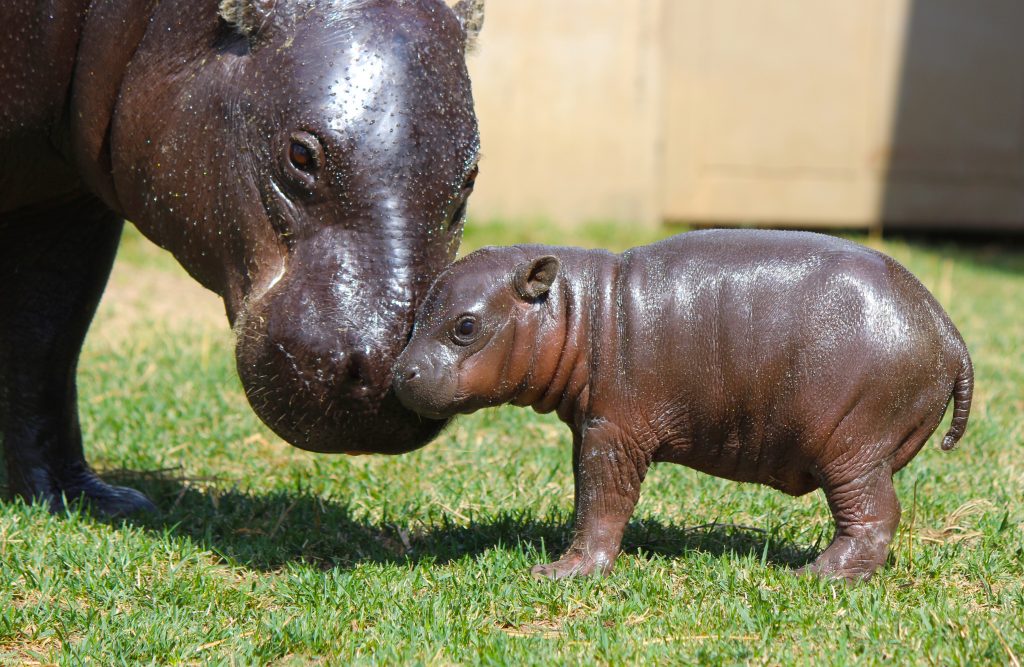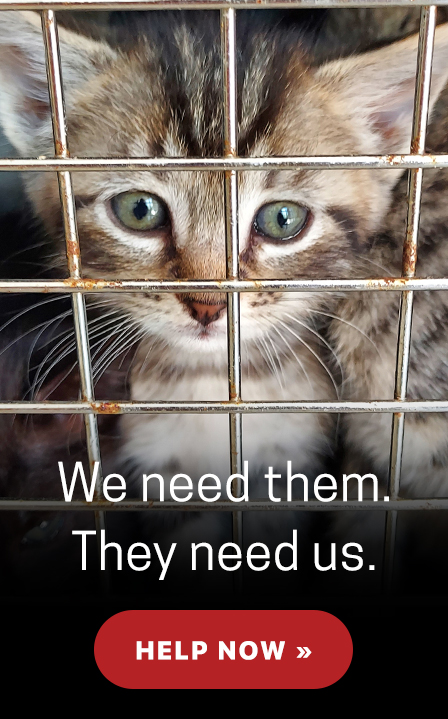In honor of National Zoo and Aquarium month, American Humane is celebrating Humane Certified™ zoological facilities and the incredible work they do to save species, provide life-saving research and education, and inspire millions of visitors each year to protect the animals that they see and interact with. The following blog post was submitted by Tanganyika Wildlife Park.
According to the Association of Zoos and Aquariums, over 181 million people visit US zoos and aquariums each year. While there are many schools of thought as to why, we believe it is because people have a yearning to be connected to animals. In fact, The Animal Connection by world-renowned anthropologist, Pat Shipman, tied the very evolution of humans, dating back to the Stone Age, to our partnership with animals.
People are looking for more than entertainment. They want to be a part of nature. As more of the world becomes industrialized and urbanized, our connection to the natural world is vanishing. And while city parks and small nature centers can connect us to native wildlife, there is no feasible way for most people to connect with species from around the world except by visiting their local or regional zoo.
Zoos, wildlife parks, and aquariums across the country are doing a tremendous job preserving the existence of many species that are facing ever increasing troubles in the wild due to human-animal conflicts. According to many experts, the world is in the middle of a sixth mass extinction, with an extinction rate up to 100 times higher than expected since 1900. While zoos, wildlife parks, and aquariums will do what they can to stem off this tragedy by providing safe harbor, they simply do not have the space and resources to save them all.
So the other critical role zoos, wildlife parks, and aquariums have is connecting people to the natural world and the species that are vanishing. Simply put: if people don’t care enough about something, then that something will cease to exist. Most people can’t afford to book a safari to plains of Africa, the jungles of South America, or the tropical forests of Asia. However, they can and do visit their local zoos, wildlife parks, and aquariums because it is the best and most economical way to see rare and endangered species from around the world.
Some zoos, like Tanganyika Wildlife Park, are taking the connection to the next level. They believe that in order to build a strong connection between people and the animals simply “seeing” animals isn’t enough, especially for younger generations. Research commissioned by the Association of Zoos and Aquariums had similar findings and stated,
“On average, people view a traditional exhibit for an average of thirty to ninety seconds (Bitgood, Patterson, and Benefield, 1988; Johnston, 1998; Ross and Gillespie, 2008). They also demonstrate less interest in inactive or difficult to view animals (Luebke and Matiasek, 2013; Moss and Esson, 2010). In contrast, animals that are presented out of their enclosures by handlers are easy to view and often engage in behavior that is interesting for the visitor to observe. In two studies, visitors viewed animals three and four times longer while they were being presented in demonstrations outside of their enclosures with a handler than while they were on exhibit (Povey, 2002; Povey and Rios, 2002).”
Getting people as close as safely possible to the animals and allowing interaction where possible further strengthens the connection with the animals. At Tanganyika, we have received testimony from an eight-year-old girl that had the strength to overcome a four year bout with cancer due to spending time with a penguin, a man that was brought back from the brink of suicide after spending some time feeding lemurs on the island, and an elder gentleman who rediscovered life after his wife of many years passed away while feeding a flock of lorikeets.
Our connection to nature is powerful and deeply rooted in our very being. Zoos and wildlife parks are the best way to reignite that connection. And the more they can kindle that connection to nature, the more likely people are to care about what is happening to animals around the world.


